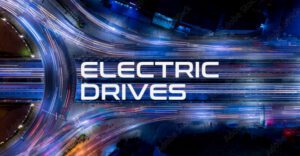According to the latest figures from the Society of Motor Manufacturers and Traders (SMMT), UK new car registrations rose by 15 percent in February as 58,994 new cars joined Britain’s roads. Battery electric vehicle (BEV) sales shined once again.
The overall rise of 7,682 units was in comparison with the same month in 2021 when the pandemic shut car showrooms across the UK. Despite this positive performance, registrations are down 25.9 percent on pre-pandemic levels, as vehicle supply remains constrained by semiconductor shortages.
While petrol vehicle sales dominated with a 43.3 percent market share, diesel vehicles only accounted for 6.6 percent of sales. As consequence, battery electric vehicles sold almost three times as many.

It was another bumper month for battery electric vehicles (BEVs), with 10,417 sales accounting for 17.7 percent market share. This is a 196.3 percent increase over the same period last year.
With February typically being the lowest volume month, because many buyers delay purchases until the ‘new plate’ month of March, this makes these figures all the more impressive.
Registrations of plug-in hybrid electric vehicles (PHEVs) rose to 4,677 units and a 7.9 percent share of the market. When combined with hybrid (HEV) registrations (6,883), electrified vehicles accounted for more than a third of all new cars leaving dealerships. This demonstrates the growing demand for electric cars.

So far this year 24,850 battery electric vehicles have been sold in the UK. This compares to 9,776 sales for the same period in 2021 and represents a 154.2 percent increase year on year.
Mike Hawes, SMMT Chief Executive, said: “Despite February’s traditional low registration numbers, consumers are switching to EVs in ever-increasing numbers. More than ever, infrastructure investment needs to accelerate to match this growth.
“Government must use its upcoming Spring Statement to enable this transition, continuing support for home and workplace charging, boosting public chargepoint rollout to tackle charging anxiety and, given the massive increase in energy prices, reducing VAT on public charging points. This will energise both consumer and business confidence and accelerate our switch to zero emission mobility.”




